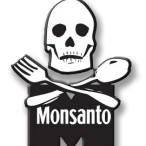
31 August 2012 | News | Resisting neoliberalism | Forests and biodiversity | Food Sovereignty
The New Republic of Soy
Interview with Carlos Vicente of GRAIN
Download: MP3 (6.2 Mb)
Download: MP3 (1.6 Mb)
There are several bills in South America that aim to regulate the production, conservation, development and exchange of seeds. According to Carlos Vicente, from GRAIN, they represent a “reform of the United Soy Republic” in the Southern Cone led by transnational corporation Monsanto.
Carlos Vicente is a member of Grain, an organization that monitors information about how transnational corporations behave in the region, in Latin America and the world.
The implementaiton of UPOV rules (International Union for the Protection of New Varieties of Plants) in Chile and Colombia, which have been strongly resisted by peasant, indigenous and farmers’ groups; the fast approval of new events of genetically modified crops (GM) in Paraguay after the coup d’état that ousted Fernando Lugo; the promotion of a new seeds law that Argentinean president announced as a way of facilitating the “return” of investments from Monsanto to the country and the signing of an agreement between Uruguay’s main public institute of agrarian research (INIA) and Monsanto, are a clear evidence of all that.
“Agribusiness is behind the coup d’état in Paraguay. Some of its sectors directly control the decision-making process of Federico Franco’s administration (an illegitimate president). Very few days after Lugo’s ousting on June 22 a demonstration by the Producers Union was planned. They receive support from Monsanto and Cargill”.
The Minister of Agriculture of Argentina, Norberto Yauhar, announced some days ago that it would submit a seeds bill that would promote its patenting and the payment of royalties by farmers for intellectual property rights. Argentina also aims to play an important role in the market of GM soy seeds and other cereals for export, a business that benefits the big transnational corporations that concentrate the patents.
Monsanto announced in the early 2000s its withdrawal from Argentina since, they claimed, the country lacked “legal safety”. However, this year, the Argentinean president announced in an official visit to the US that these investments were back in Argentina. The new seeds law would be one of the elements to reinstate the sorely missed “legal safety”, explains Vicente.
“This seeds law is not only for soy, but for all seeds, so it is another step towards the privatization of life and its appropriation by transnational corporations”, he added.
About the UPOV regulations, Vicente says the rules establish the rights to “obtain” a variety of plant that is “the monopoly” over certain varieties, by ignoring the ancient process of adapting, preserving and improving these species by peasant and indigenous farmers.
The right to obtain seeds is created in 1978, although the right to its use is recognized, that is to say the farmers’ right to keep their harvest for future crops. But in 1991, the so called UPOV 91 regulation, which is now being promoted in Latin America, is moving towards privatization by limiting its use and research. “In this way, a company may have monopoly over a certain seed, so if somebody else wants to use it, it should pay the company”, said Vicente.
The activist and researcher highlighted the colonization by transnational corporations of the public spaces for research and development, confirmed through agreements, the transfer of funds and other commitments both in Argentina and Brazil, Uruguay, Paraguay and Chile.







